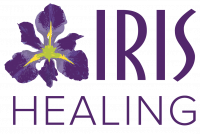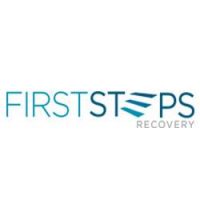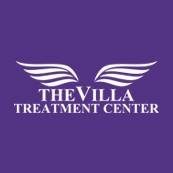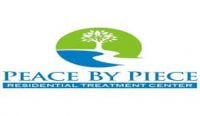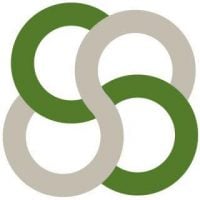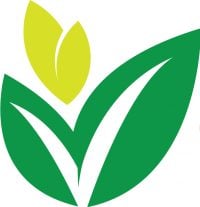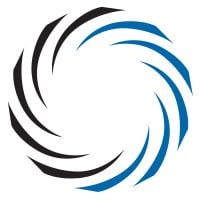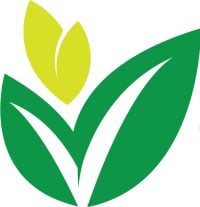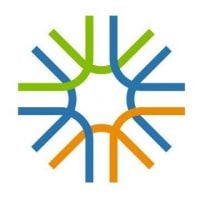Iris Healing Center - TMS
Drug Rehab Center in Woodland Hills, California
Iris Healing Center - TMS is an accredited, top-rated addiction treatment facility located in Woodland Hills, California providing comprehensive outpatient care with evidence-based interventions such as cognitive-behavioral therapy and dialectical behavior therapy to help individuals recover from substance abuse.
About Iris Healing Center - TMS in California
Iris Healing Center, nestled in Woodland Hills, California, stands out for its comprehensive recovery solutions for individuals battling substance abuse and dual diagnosis. This center is distinguished by its integration of transcranial magnetic stimulation (TMS) and neurofeedback within its treatment modalities. Offering both residential and outpatient programs, it caters to teens and adults seeking a path to sobriety.
- Specializes in the integration of empathy and spirituality into recovery, embodying its mission to heal through understanding and connection.
- Provides a broad spectrum of therapies including SMART Recovery meetings, spiritual support, and art therapy to address the multifaceted nature of addiction.
- Accepts a wide variety of insurance plans, making treatment accessible to a broader community.
Holding accreditations from the Joint Commission on Accreditation of Healthcare Organizations (JCAHO) and certification from LegitScript, Iris Healing Center assures quality care that meets high industry standards. This facility is not only committed to excellence but also to creating personalized treatment journeys for each individual.
At Iris Healing Center, patients can find specialized treatments for issues ranging from substance abuse and opioid addiction to eating disorders and dual diagnosis. Utilizing a combination of cutting-edge treatments like TMS, alongside traditional recovery methods, the center facilitates a holistic recovery experience at both residential and outpatient levels of care.
Genders
Ages
Modality
Additional
Accreditations

LegitScript

JCAHO
Conditions and Issues Treated
Substance abuse is defined by the continued use of drugs or alcohol despite negative consequences, such as legal or work problems. It can be treated using a variety of services, including therapy and medication.
Substance abuse treatment is beneficial for:
- People who have been using drugs or alcohol for a long time.
- People who have been using drugs or alcohol to cope with stress, anxiety, or depression.
- People who have a mental health disorder in conjunction with substance abuse.
- People who continue to use drugs or alcohol despite the harmful effects they cause on their own life and the lives of others.
- People who have had multiple failed attempts at recovery without medical assistance.
If you believe that addiction treatment is right for you or a loved one, you can contact your primary care physician, or search for addiction treatment centers in your area. Treatment is beneficial to people who are motivated towards recovery, and who understand the benefits of professional care.
Opioid addiction is a common form of addiction, often caused by prescription drugs that are abused. Addiction is treated by detoxifying the body and following up with therapies to correct behavior and target the root of the problem.
Most opioid addiction begins with patients being prescribed painkillers after an injury or surgery. The body becomes used to the chemicals in these medications and soon no longer responds to their presence. As a result, addicts seek out stronger opiate-based medications like Oxycodone to compensate for the lack of effectiveness.
The most dangerous aspect is that these addictive behaviors often get carried over onto illicit drugs like heroin, which are increasingly potent and result in lower life expectancies.
Levels of Care Offered
This center offers a variety of custom treatment tailored to individual recovery. Currently available are Drug Rehab, Outpatient, with additional therapies available as listed below.
Outpatient treatment programs are less intensive than an inpatient program. Participants live at home while working or going to school. Benefits include being able to continue relationships with family, friends, and work/studies. Treatment includes educating patient on addiction to drugs, medication, and counseling. Benefits include being able to continue relationships with family, friends, and work/studies. Treatment includes educating patient on addiction to drugs, medication, and counseling. Counseling sessions are for either individual or group.
Therapies & Programs
Family dysfunction can often be the underlying cause of substance abuse. To get sober, you need to find a different way to cope with the pain in your life. Family therapy can help you and your family deal with old issues that may trigger substance abuse. It will help everyone understand why each member of the family feels and acts the way they do. It can give everyone new tools to manage their emotions so that they don’t want to drink or do drugs.
Dialectical behavior therapy is a type of cognitive-behavioral therapy that focuses on eliminating specific negative thoughts that can potentially lead to an individual inflicting self-harm. It helps treat patients exhibiting uncontrollable emotions, intense mood swings, and borderline personality disorders.
The term “dialectic” means the integration of opposites. In the substance abuse context, dialectical behavior therapy refers to accepting the patient’s addiction and changing their thoughts and behavior. It improves life skills such as controlling intense emotions without reacting impulsively, resolving interpersonal conflicts effectively, and promoting awareness about self and others.
Cognitive behavioral therapy (CBT) is a type of psychotherapeutic treatment that is focused on changing negative ways of thinking that contribute to addictive behavior.
Cognitive behavioral therapy is beneficial for:
- People who are seeking to overcome addictive behavior
- Those who struggle with addictive behavior and mental illness
- People who have a genetic history of addiction in their family
- Those who don’t want to depend on medications
- Those who need a more practical treatment approach
The 12-step program is one of the most common forms of addiction treatment today. It consists of attending meetings and working with a sponsor to follow the 12 steps outlined by Alcoholics Anonymous. This method is not for addicts who are unwilling to or have no desire to quit using and so is best utilized when paired with other treatment methods.
Thinking about nutrition is an odd thing when you’re strung out. You are probably so low physically that all you want to do is sleep, eat comfort food and get high again. It’s hard to imagine having enough energy to care about what kind of food you are eating but think about it. Your body has gone through some severe physical stress, so it is vital to give it the building blocks it needs to recover. It’s equally important to remember that malnutrition can affect your mood and energy level, which affects your desire to get sober.
If you’re eating right, you’ll have more energy for productive activities, such as going to meetings or being with other sober people in Woodland Hills, California. You’ll have more strength to fight cravings, and you won’t be so low that they are overwhelming. You will think clearly enough to make sober decisions. Finally, good nutrition helps keep your body strong against the familiar ravages of drug use–tuberculosis, hepatitis, abscesses, infections, etc.—as well as the physical symptoms of withdrawal.Nicotine replacement therapy can help addicts reduce or eliminate their cravings for nicotine. By replacing the harmful substances in tobacco with less potent chemicals, most smokers can gradually wean themselves off cigarettes without experiencing intense cravings.
During these sessions, a therapist will work with the addict to gradually reduce their dependence on nicotine by controlling how much they smoke and providing appropriate breaks between cigarettes. Using this type of therapy in combination with other strategies can help smokers learn how to quit smoking for good and avoid relapse.
Payment Options Accepted
For specific insurance or payment methods please contact us.
Is your insurance accepted?
Ask an expert, call (888) 674-0062
Iris Healing Center Associated Centers
Discover treatment facilities under the same provider.
No items foundLearn More About Iris Healing Center Centers
Additional Details
Specifics, location, and helpful extra information.
Woodland Hills, California 91364 Phone Number(844) 663-4747 Meta DetailsUpdated April 15, 2024
Staff Verified
Is Iris Healing Center – TMS a LegitScript Verified Treatment Facility?
According to our most recent records, we have found this center to be LegitScript verified.
Iris Healing Center - TMS Patient Reviews
There are no reviews yet. Be the first one to write one.
Woodland Hills, California Addiction Information
More than 3 million of California's citizens are addicted to illegal drugs. Almost 800,000 people use hard drugs, almost 5 million use marijuana, and another 2.1 million abuse alcohol every year. Other substance abuse issues such as binge drinking and teen drug use are also common. Many illegal drugs such as cocaine, heroin, methamphetamine, and marijuana are smuggled into the state from Mexico.
The drug addiction problem in Woodland Hills, California, is quite serious. In 2012, there were 9,000 drug overdose deaths, and that number has likely increased in recent years. Additionally, around 11% of residents report using an illicit drug. The drug treatment program in Woodland Hills, CA, is very comprehensive. The program is designed to help you overcome your addiction and regain control of your life involving individual and group counseling.
Treatment in Nearby Cities
- Santa Cruz, CA (274.6 mi.)
- Capistrano Beach, CA (71.6 mi.)
- Ontario, CA (53.4 mi.)
- Loomis, CA (353.1 mi.)
- Manteca, CA (291.2 mi.)
Centers near Iris Healing Center - TMS
The facility name, logo and brand are the property and registered trademarks of Iris Healing Center - TMS, and are being used for identification and informational purposes only. Use of these names, logos and brands shall not imply endorsement. RehabNow.org is not affiliated with or sponsored by Iris Healing Center - TMS.
